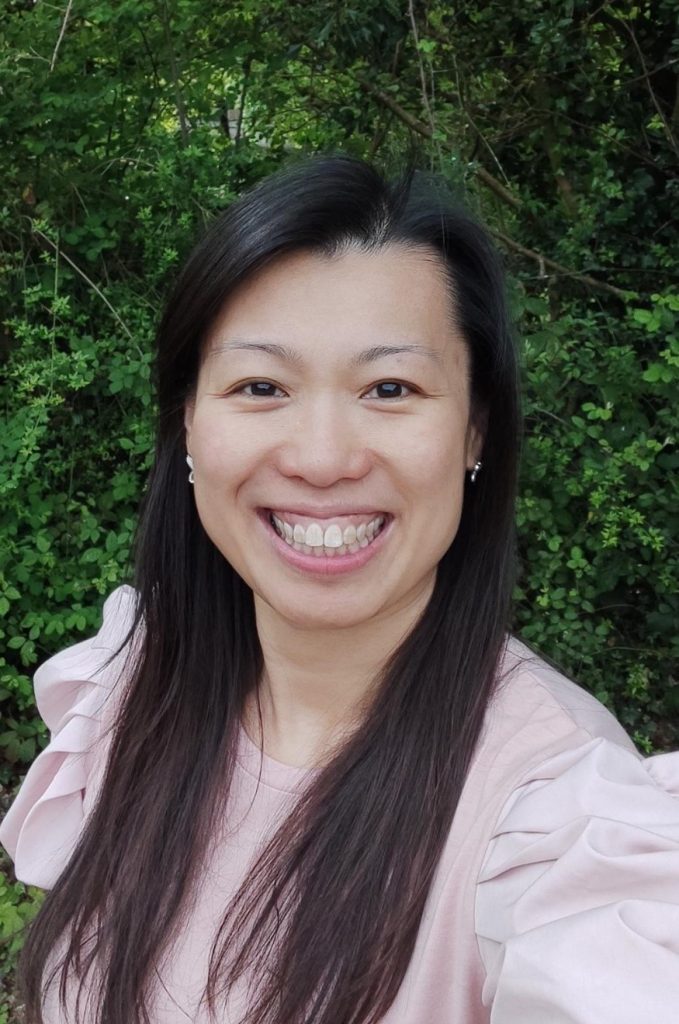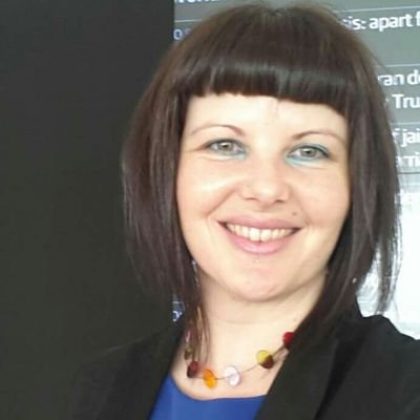Becoming a Clinical Fellow to the Chief Allied Health Professions Officer
Reflection
Venus Madden tells us all about the Clinical Fellowships available with the Chief Allied Health Professions Officer and how these support practitioners to become clinical and academic leaders.
Art therapists are creative and innovative. You all utilise the creative process to help people. You don’t need ‘permission’ to lead changes. Be the change you want to see.
Venus is a registered occupational therapist currently working as the Clinical Fellow to the Chief Allied Health Professions Officer (CAHPO) in NHS England. The CAHPO Clinical Fellowships are also open to art therapists and offer emerging clinical or academic leaders the opportunity to develop skills in leadership, management, strategy, project management and health policy outside of clinical practice.
Under the scheme, Venus Madden is both excited and proud to be working with Suzanne Rastrick, Chief Allied Health Professions Officer (CAHPO) for England.

Venus, can you tell us something about yourself, your background and career to date?
I worked as a volunteer in a rehab hospital in Hong Kong when I was 15. I came across occupational therapist as a profession and I knew I wanted to become one. I spent time on a mental health ward as well as a day centre, where I thought I could make a difference.
Unfortunately, occupational therapy is a profession that was not greatly understood and appreciated in Asian countries at the time. Mental illness was, and still is, a stigma in Hong Kong. ‘Luckily’, my parents are very much from the working class, but value education, and they supported me to come to the UK when I was 18.
Having completed my occupational therapy degree, I have worked in a range of physical and mental health settings. My most recent appointments were as a clinical lead at Broadmoor Hospital and an Allied Health Professions (AHP) Leadership Fellow at West London NHS Trust, where I am the Chair of the Race Equality Network. I am also a guest lecturer for a university. My first master’s degree was in psychoanalytic approaches in mental health, and I completed my Master of Business Administration (MBA) senior leadership apprenticeship last year.
I am aware that I am very privileged to a certain extent. I am a big believer in being kind to others and giving back to society as and when we can. I volunteer for the Inspiring the Future campaign and I’m about to start serving my third term of office as a public governor for a local foundation trust.
Why did you apply to the CAHPO Clinical Fellowship Scheme?
I wanted to develop myself and to broaden my sphere of influence. Due to having a young family I had been looking for flexible opportunities to do this.
The clinical fellowship to the CAHPO is a unique opportunity, allowing any allied health professional (AHP) looking to work at a national level to develop that strategic ‘helicopter’ view, which would impact on all frontline AHP colleagues’ work.
Suzanne’s leadership and vision to increase representation are very clear. She is fully committed to the equality, diversity and belonging agenda and that commitment really drew me in. The thought of having the opportunity to be mentored by Suzanne, developing networks with colleagues across England, working with other arms-length bodies and most importantly, overcoming my discomfort with putting myself ‘out there’, encouraged me to apply for the job.
I did have my ‘imposter syndrome’ moment, but my mentor at the time, Helen Lycett, Associate Director for AHPs at West London NHS Trust, gave me a lot of encouragement.
You are six months into your post now, what are your reflections?
The primary objective of my fellowship is to socialise and implement the AHP strategy, which means I have the opportunity to connect and work with AHP and non-AHP colleagues across seven regions. I have learned so much about other AHP groups! I have also met some incredibly inspirational AHP students and support workers who have been making a real difference to the people and carers we work with, of which I am in absolute awe.
I have recently started connecting with different professional bodies too. Although we might face slightly different challenges, we all want to support our members and colleagues to do the best they can, while championing and celebrating their identities and work. Ultimately, we enter AHP professions because of our passion to help and support others, while making a real meaningful difference to the people we work with. We are resourceful and good at finding our ways to engage with some of the most challenging work. But we do need to focus on how we can attract others to join our professions, as well as looking after our existing colleagues!
One of the things that surprised me most, was the lack of understanding and awareness from the public of who we are and what we do. I have been engaging with different sounding boards and various forums across England, having conversations with individuals and carers with lived experience. I was slightly taken back when I was asked questions like ‘do I need to be artistic to receive art therapy?’ or ‘what is the age group art therapists work with?’ etc. We are the third largest health care workforce and yet, we need to do so much more to strengthen and promote our professions!
How different do you think your work as a Clinical Fellow will be, compared with what you are used to at the provider level?
I have to take my ‘provider land’ hat off for the majority of the time and think more strategically from a ‘helicopter’ view. The deliverables are often very strategic and long-term, which means we might not necessarily see the difference made to our public imminently.
Working at a national level means I need to step back from all the daily processes and operations and consider the long-term direction that we need to take in order to meet the population’s needs.
In the MBA language, I need to consider external and macro factors, develop a further understanding about the impact of the AHP workforce, what our populations need, and what matters to them. We need to market ourselves and engage with the public as much as we can using various platforms. We also need to be ‘out there’ sharing our AHP awesomeness with potential future workforce. Research has shown that children as young as eight or nine years old are starting to consider their career paths these days. Social media is such a big influence, so how we harness this digital platform to showcase our work is something we need to think about.
I continue to share my story and journey, and hopefully I can inspire others to go out there and be courageous and curious.
What is your key message for art therapists?
I would encourage art therapy colleagues to start by joining me on the new AHPs Deliver strategy journey. This will help you begin by asking the question ‘what matters to you?’ – to yourself, to the people and communities you work with, and to your colleagues. Is there any small incremental change you can do to make a difference to your practice, your colleagues, and the people you work with? How do you share our AHP awesomeness in your own personal and professional networks?
Implementation of this strategy is about making and taking the right actions. Art therapists are creative and innovative. You all use the creative process to help people. You don’t need ‘permission’ to lead changes. Be the change you want to see.
Contact
Contact Venus at venus.madden@nhs.net or follow her on Twitter @TheVenusMadden
